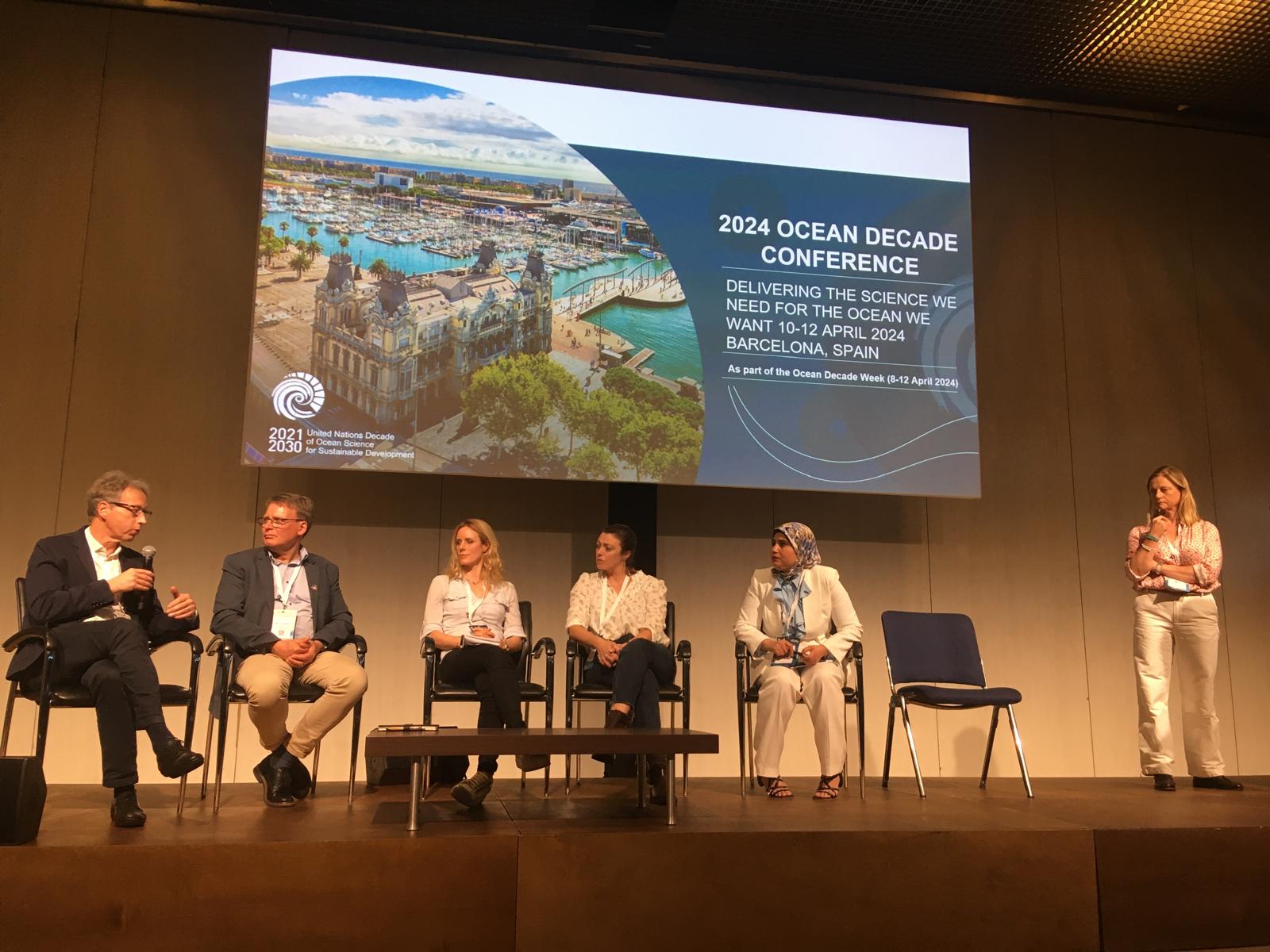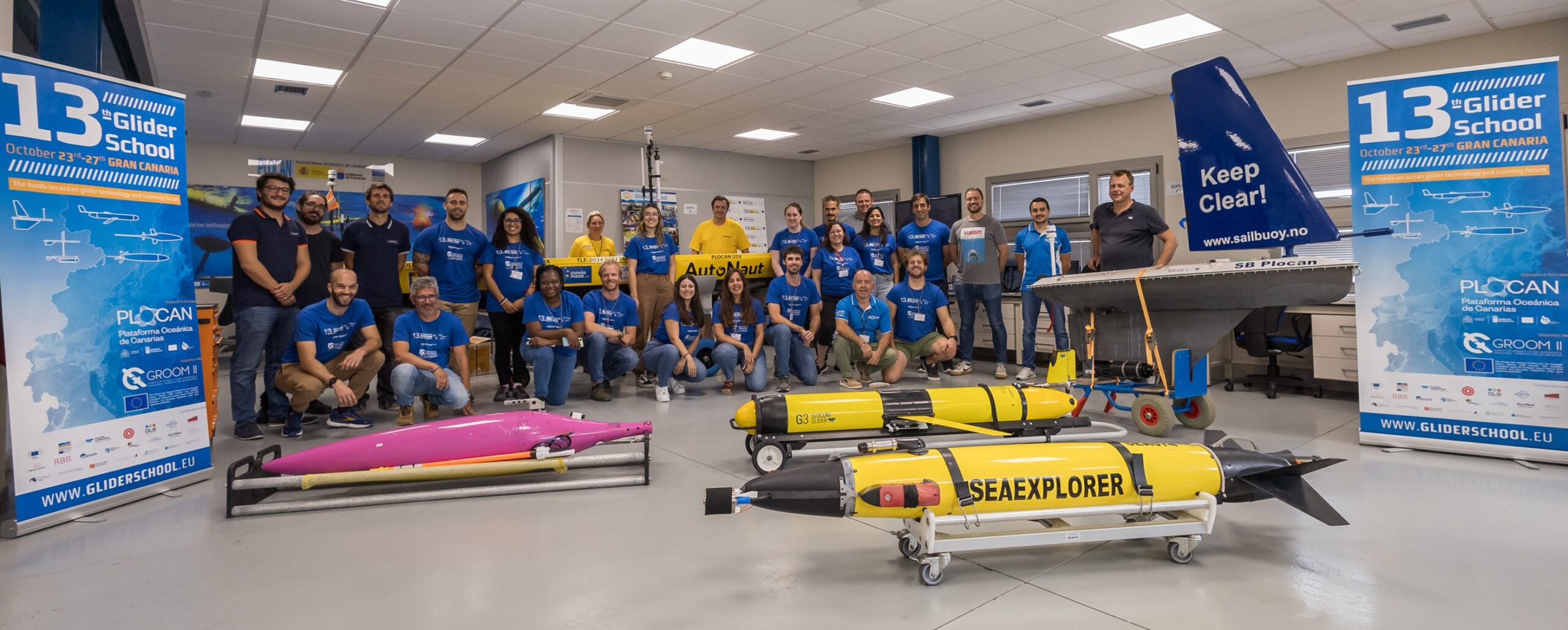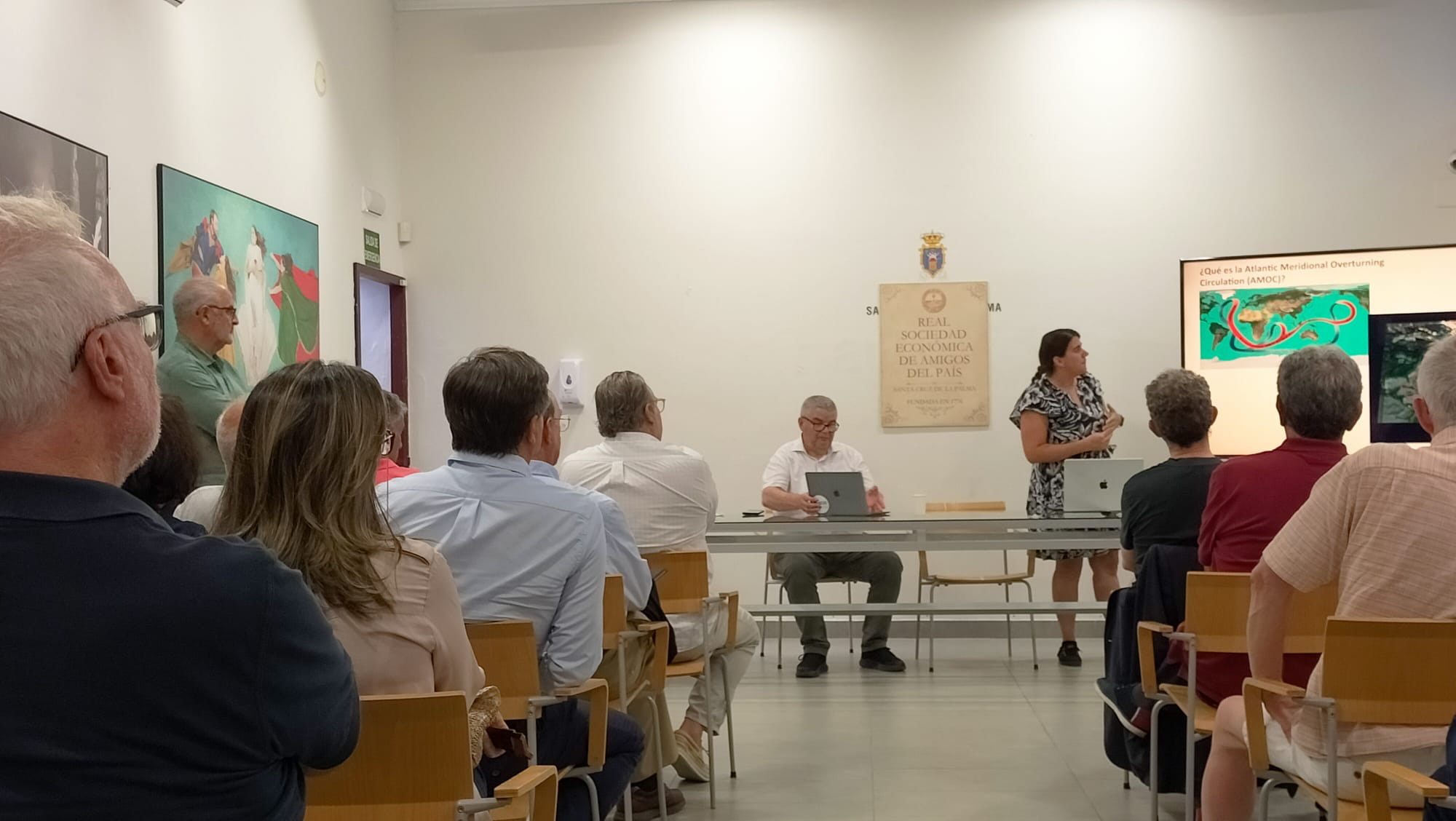The Norwegian company Ocean Oasis will test a wave-powered floating desalination plant in the test site of the Oceanic Platform of the Canary Islands (PLOCAN). The solution proposed by Ocean Oasis allows the production of fresh water in ocean waters by using a technology that captures the energy of the waves to carry out a desalination process and supply desalinated water to the coast through pipes laid on the sea bottom. Sebastián Feimblatt (COO) and Thomas Berge Johannessen (CTO) representing Ocean Oasis and the CEO of PLOCAN, José Joaquín Hernández Brito, have taken the first step towards the access to the test site, scheduled for this summer.
Feimblatt has pointed out that “PLOCAN offers us the ideal environment to test our technology both for infrastructure, experience and location. Testing the technology in such an important market as the Canary Islands is essential for us”. The CEO of PLOCAN has highlighted that with direct exposure to the Atlantic Ocean and with the presence of the Trade winds, the Canary Islands show an important wave energy potential, especially on the northern coast of the islands, with estimated data ranging from 15-20kw/m. Along these lines, the current proposal of the Energy Strategy of the Canary Islands (EECan25) 2015-2025 of the Government of the Canary Islands, identifies the use of wave energy potential as a great opportunity to exploit natural resources for the benefit of the islands.
Devices like the one of Ocean Oasis, continued Hernández Brito, guarantee the utilization and the viability of this energy resource by applying it to real solutions aimed at lowering the production cost of drinking water and the environmental sustainability of regions such as the ours with a high dependence on desalination.
The Ocean Oasis’ solution enables the production of desalinated water in a sustainable, flexible and scalable way, being able to install a unit or a fleet to provide fresh water to a whole city, complementing the desalination plants on land that require other sources of energy.
Desalination growth and offshore potential
Currently more than 300 million people depend on desalination for the supply of water, accounting for about 1% of the total freshwater supply. Climate change and depletion of traditional resources is increasing the need for desalination and calculates that this will have to double in 2030 to supply the needs of the population.
However, the traditional desalination requires large amounts of energy, resulting a large carbon footprint and high cost. From this premise, Ocean Oasis points out that the desalination harnessing wave energy brings a new dimension and opportunities to supply desalinated water without emissions and at a competitive cost.
The use of wave energy in deep water also allows a clean capture of water and the discharge of brine in a sustainable way, minimizing the environmental impact.
Target markets
Ocean Oasis technology can be used on the coasts of the world where the action of waves is enough, highlighting among others, the Canary Islands, Morocco, South Africa and Australia.
The potential for application in the Canary Islands presents a great opportunity to supply the islands with desalinated water and reduce the environmental impact and cost. In this sense the company will establish an office and part of its R&D&i activities in Gran Canaria.
Ocean Oasis counts for this development with the support of Norwegian public capital through Innovation Norway, the European Commission through the EIC Accelerator and private equity from Norwegian and European investors.



